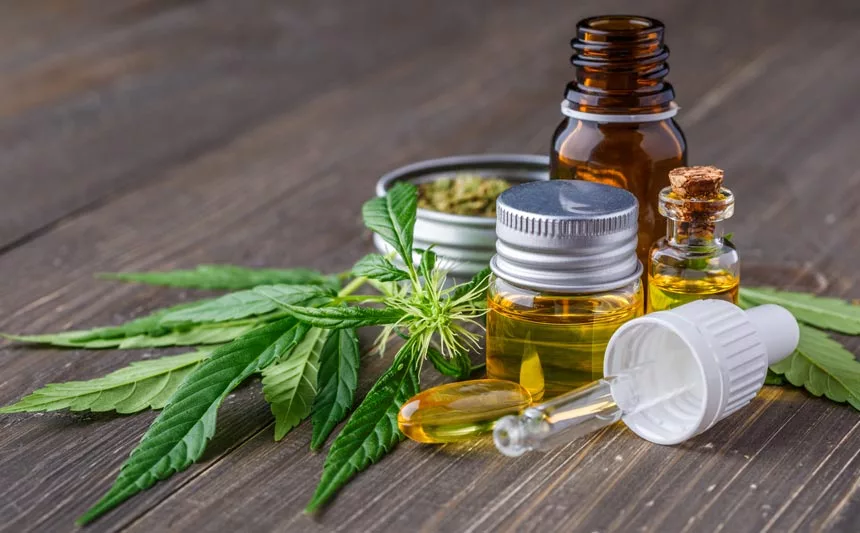Mississippi Rehabs: Finding a Rehab In Mississippi
In any given year, more than 350,000 Mississippians, or 11.68 percent of the state’s population, use illegal narcotics, while 108,000 citizens, or 3.62 percent of the state’s population, abuse alcohol.
Whether for drink or drugs, the need for Mississippi alcohol and drug rehab centers is a clear one for many residents. But where can someone in need turn for effective addiction treatment in Mississippi?
Mississippi Drug Abuse Statistics
Mississippi rehabs are doing a fantastic job of lowering the death rate associated with substance misuse. The proportion was lower than the national average of 13.3 percent. While this is a better statistic than the national average, the numbers nearly doubled in 2013 when compared to the state average.
Furthermore, it appears that the state is seeking to reduce adolescent non-medical prescription drug usage (NMUPD). Because so many people use prescription medicines, children have easy access to them. Although the number of people using prescription opioids is increasing, heroin addicts are rarely treated in state-run treatment facilities.
The majority of overdose deaths are most likely the result of unintentional usage of professionally prescribed medications. Officials from each state’s drug rehabilitation centers work proactively to uncover the causes of substance misuse among their patients to help them overcome their physical and mental limits.
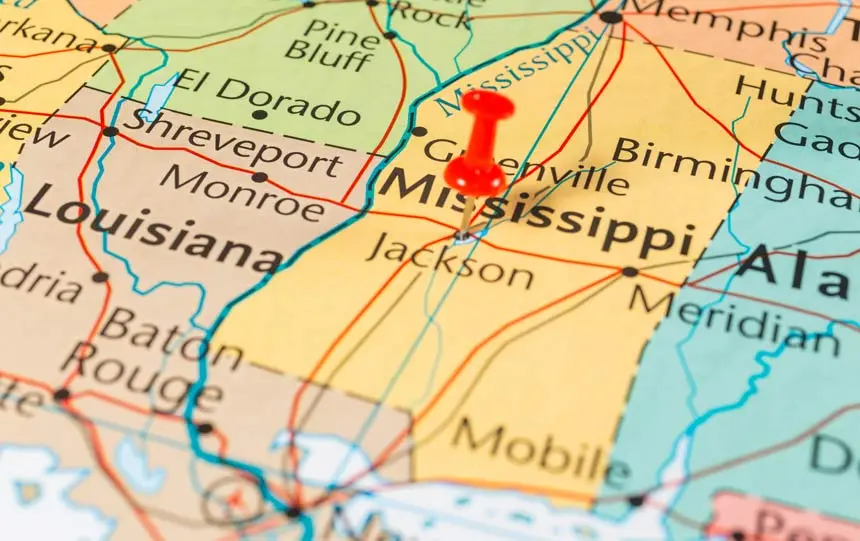
Every treatment center in the state works to help those who are addicted to opiate painkillers. On a national scale, Mississippi, along with other southern states, accounts for the majority of such narcotics per capita. Men are more likely than women to die as a result of an accidental overdose.
Mississippi ranked fourth in the US in terms of painkiller prescriptions written in 2018, with 92 prescriptions written per 100 individuals. Prescription drugs, such as opioids and benzodiazepines, were responsible for 75% of unintentional overdose deaths in Mississippi in 2018.
Although the majority of people take pain relievers as prescribed by their doctor, some may use them to get high, which can lead to addiction. Due to the escalating cost of prescription medications, some Mississippians have turned to illegal alternatives such as heroin and fentanyl. Because of its lower cost and widespread availability on Mississippi’s streets, heroin is frequently the drug of choice for people who have been addicted to prescription opioids or other opiates.
Marijuana is the most commonly abused drug in the state, according to treatment admissions. Other Mississippi residents have sought and received treatment for the following addictions:
- Cocaine and crack cocaine
- Methamphetamine
- Tranquilizers
- Sedatives
The presence of methamphetamine in the state is another important source of concern. The number of meth labs in the state decreased when a bill was passed in 2010 that classed pseudoephedrine as a prescription drug. Meth use is still a problem in Mississippi, but manufacturing has decreased since the law was passed.
Mississippi Drug Addiction Statistics
- Approximately 710,000 Americans died from drug overdoses in 2019. Mississippi people, according to data on drug and alcohol usage, face many of the same addiction challenges as the rest of the country.
- Mississippi has one of the highest rates of opioid prescriptions in the country.
- 6.6% of 12-to 17-year-olds reported using illegal drugs in the previous month.
- 4.5 percent of adults aged 18 to 25 reported taking illicit substances in the previous month.
- In Mississippi, doctors wrote 67 opioid prescriptions for every 100 people in 2019. In Mississippi, opioid overdose deaths increased by 25.9% in 2019.
- The number of drug overdose deaths in the state increased by 25% between 2018 and 2019.
- Concurrent use of various substances was responsible for 47.8 percent of overdose deaths in the same year.
- Alcohol consumption disorder was identified in 6.6 percent of Mississippians aged 18 to 25.
- Between 2017 and 2019, 9.3 percent of Mississippians aged 12 to 17 reported drinking in the previous month.
Substance Abuse Treatment in Mississippi
Mississippi’s numerous drug rehabilitation programs seek to aid people struggling to overcome their drug or alcohol addiction. Similarly, people suffering from multiple substance use disorders or co-occurring disorders do not need to travel out of state to receive adequate treatment. Mississippi addiction treatment facilities can help patients achieve their recovery goals.
Find Addiction Rehabs partners with a nationwide network of accredited treatment centers. As a result, their representatives can help you or your loved one with the responsibility of locating the most effective addiction treatment options. It has never been easier to break the cycle of substance misuse and addiction thanks to their network of addiction specialists.
Most people looking to regain their lives are concerned with finding specialized and cost-effective rehabilitation services. Therefore your financial situation and addiction history will be taken into account when matching you with an addiction treatment provider.
Callers to Find Addiction Rehabs are often relieved to find that having insurance coverage for rehab does not ‘make or break’ the ability to get help.
Detoxification Programs Under Medical Supervision
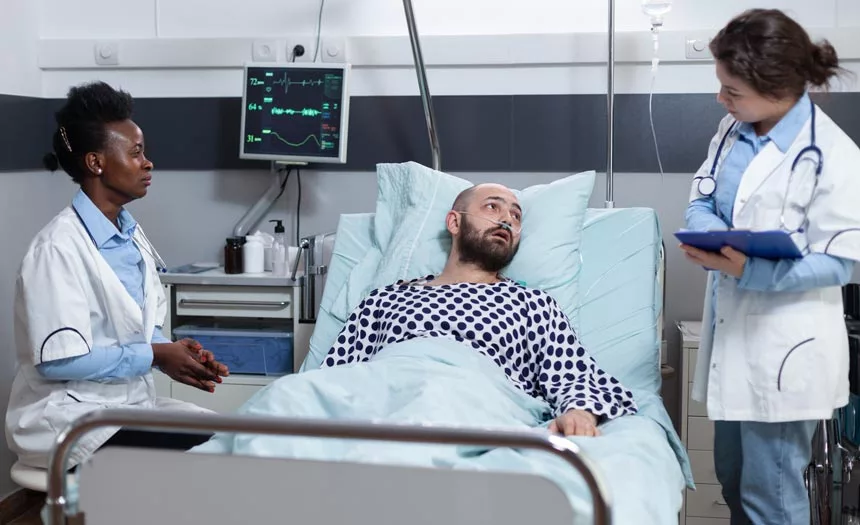
Detoxification aids in the management of the physical symptoms of alcohol or drug withdrawal. The severity of withdrawal symptoms varies. You may have severe cravings while detoxing from drugs or alcohol.
Treatments for detoxification under medical supervision are critical for maintaining your health and decreasing withdrawal symptoms. Medication may be prescribed to alleviate your symptoms. Detox can be delivered as part of a residential treatment program or as an outpatient service.
Mississippi Inpatient Drug Treatment Centers
Because addiction is difficult to overcome on one’s own, many people require continuing care and counseling from the start of their recovery journey, with medical detox all the way through help with aftercare planning. Mississippi inpatient rehabs may offer 24-hour monitoring and a full program of activities to keep these patients involved and focused on their recovery.
Patients enrolled in these programs may stay at the institution for several weeks at a time and engage in a variety of activities such as counseling, group therapy, and holistic therapies. These stringent guidelines and continuous supervision might help patients overcome the physical and mental challenges of early recovery.
Other facilities may make patients believe they are staying in a five-star hotel. Some treatment centers may also cater to specific communities or provide one-of-a-kind and tailored programs. Finding the right Mississippi drug treatment program for your requirements might be difficult because each program is unique.
Detox in Mississippi
Detoxification may be the first stage in a person’s treatment strategy if they acquire a physical dependence on drugs or alcohol. Various Mississippi detox centers provide drug detoxification programs in which patients are constantly examined by medical experts and given drugs to alleviate withdrawal symptoms as needed. This allows people to safely detox from drugs and alcohol.
Residential
Residential addiction treatment centers provide various hours of therapy and other programs per day, if necessary, to meet the recovering patient’s diverse needs. This program may involve individual counseling, group activities, and classes. Patients are also housed at a Mississippi drug treatment facility during this period.
Dual Diagnosis
Some people who struggle with substance misuse also have psychological symptoms that necessitate therapy. Dual diagnosis treatment programs in Mississippi can address a patient’s psychiatric concerns while also assisting them in overcoming substance abuse.
Mississippi Outpatient Programs
Because it is not always practical or necessary for every patient to live on-site, some patients may prefer an outpatient program. Patients in these programs will live independently or in a (PHP) facility with other people in recovery, and they will attend therapy at a Mississippi outpatient treatment center for many hours per week.
The precise program schedule and curriculum will be determined by the patient, facility, and level of care. Some people may attend programming almost every day, while others may only come once a week. Individuals can choose the level of care they need right now while also planning for greater flexibility and independence as they advance along the road to recovery.
Program for Partial Hospitalization
Partial hospitalization is the second stage of in the continuum of addiction treatment. Reputable Mississippi alcohol rehabs and drug rehab Mississippi facilities seek to provide the recovering client with intense daytime therapy, continuing therapeutic intervention, and a sober living community to return to at night throughout partial hospitalization.
Increased Outpatient Care (IOP)
The Intensive Outpatient Program is another part of a comprehensive addiction treatment program, and it is meant to prepare our clients for a healthy transition back into society. An intensive outpatient program’s goal is for you to be able to manage daily challenges and tensions without the use of drugs or alcohol; integrate into the community, and apply what you’ve learned in recovery to real-world situations.
Sober Living Homes
A sober living community program is often among the final stages of recovery from alcohol and drug addiction. This stage permits the recovering person to reintegrate into society as a fulfilled, productive, and sober person. Our sober living community phase’s goal is to assist recovered folks in maintaining a clean and healthy lifestyle in their community.
Mississippi’s Drug Abuse Laws
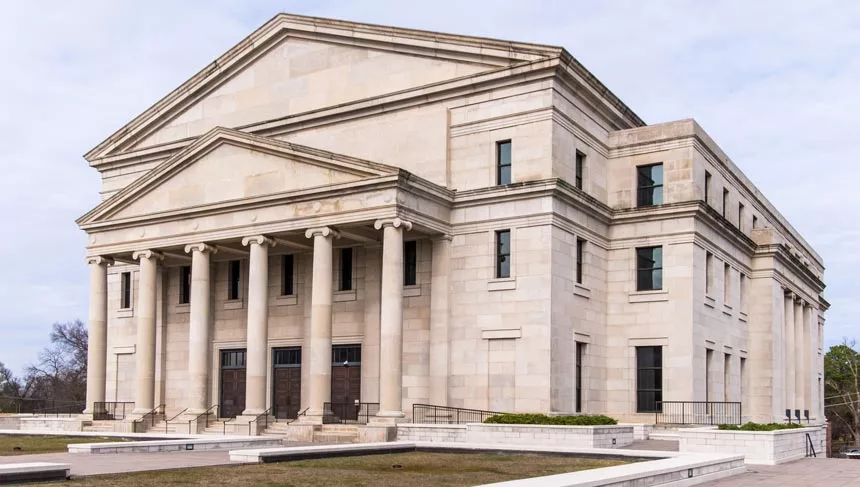
In Mississippi, around 12,000 people are arrested each year for drug-related offenses such as possession, sale, production, or trafficking.
Each type of substance is classified into five schedules so that a court can determine the appropriate penalty for a drug-related offense. These schedules aid in classifying a chemical’s addictiveness and known medical value. Substances in Schedules I and II are the most addictive and have no accepted medicinal purpose. Schedules III, IV, and V, on the other hand, contain medicines with increasing therapeutic value while decreasing dependence risk.
Penalties for Drug Possession
In Mississippi, possessing a controlled substance without a prescription is a felony, regardless of the amount involved. A person could spend up to a quarter of their life in prison and be fined six figures.
Penalties for Drug Distribution and Manufacture in Mississippi
Mississippi has harsh punishments for the sale, manufacture, and trafficking of illegal narcotics. The fine is tripled if the crime involves the Schedule II substance methamphetamine.
Possession or sale of a controlled substance within 1,500 feet of a school, church, public park, or movie theater in Mississippi doubles the penalty and jail time.
Marijuana Policies
In Mississippi, it is unlawful to possess, sell, cultivate, or transport marijuana. The consequences for marijuana possession vary depending on a person’s prior marijuana convictions. The exact punishment is up to the court, but the following are typical consequences for marijuana possession offenses:
- First-time offenders face a fine of $100 to $250 and a six-month license suspension.
- Second offense: $250 fine, 60 days in jail, and drug education program participation.
- The third offense carries a $500 fine and six months in jail.
Possession of more than 30 grams of marijuana carries a $3,000 fine and up to three years in prison. Marijuana charges carry exceptionally harsh penalties for selling or cultivating the substance. For selling, producing, or trafficking more than one ounce of marijuana, the maximum penalty is 30 years in jail and a $1 million fine.
Medical Marijuana in Mississippi
The sole type of medical marijuana permitted in Mississippi is cannabidiol (CBD), a cannabis-derived oil with a minimal THC level. According to state law, the oil must contain no more than 0.5 percent THC and may be used to treat epilepsy.
Mississippi Addiction Treatment Legislation
In recent years, state and federal officials have evolved to consider drug addiction as a sickness that must be treated rather than a crime that must be punished. Many states in the United States have passed legislation to improve public safety and treatment choices.
Methadone Addiction in Mississippi
The state provides access to methadone, a medication that alleviates the unpleasant withdrawal symptoms associated with opiate addiction, to aid in the treatment of Mississippians afflicted by the state’s opioid prescription drug epidemic.
Methadone has been used to treat heroin and other opiate addictions for decades.
Methadone is a safe and effective technique for opioid detoxification when used as prescribed. It works by altering how the brain and nervous system respond to withdrawal symptoms caused by opioids like heroin and morphine, as well as medicines like hydrocodone and oxycodone.
Mississippi has a large number of methadone-dispensing clinics. Methadone is only legally available through registered opioid treatment programs.
Mississippi legislature, Bill 512
Mississippi passed House Bill 512 in response to a substantial surge in methamphetamine lab seizures in the state. House Bill 512 requires a prescription for the purchase of any substance containing the necessary ingredients for the production of methamphetamine, pseudoephedrine, or ephedrine.
Mississippi is the second state to approve legislation mandating pseudoephedrine and ephedrine prescriptions. The number of meth lab seizures fell from 115 to 31 in the six months following the law’s adoption.
Prescription Monitoring Programs
Mississippi’s prescription monitoring program (PDMP) uses an electronic tracking system to track the type and number of prescriptions written.
Prescription drug monitoring programs help doctors and pharmacists uncover individuals who are abusing prescription drugs.
The online tool supplied by the state allows physicians and pharmacists to view a patient’s prescription history. They can intervene and provide the required care if they feel a patient is abusing prescription medicines. PDMPs have also helped to reduce the number of prescription drugs that end up on the illegal market and in cases of doctor shopping (visiting multiple doctors to get more prescriptions).
Drug Rehab in Mississippi
Mississippi’s drug treatment facilities are intended to help addicts overcome their addictions.
Mississippi rehabs treat a wide spectrum of substances, suggesting that the state is prepared to deal with a wide range of drug concerns. The majority of treatment centers cater to a diverse spectrum of people and addictions.
Mississippi Rehab Centers
When you visit a reputable rehabilitation clinic, you will be overseen by skilled specialists who will assess your specific needs, establish a personalized treatment plan, and put it into action to help you recover. Drug and alcohol rehabilitation is frequently divided into many stages.
Discuss your concerns with a concerned admissions navigator: You can find out about treatment alternatives and if your insurance covers them by calling the 24-hour helpline at Find Addiction Rehabs. Their representatives may also advise you on what to pack and handle any other issues you may have regarding your stay.
When you arrive at the institution, you will be subjected to the following assessment: Your treatment professionals will study the patient’s drug misuse, medical history, and psychosocial issues that may have led to their drug use during the initial assessment. They will assess your specific medical, clinical, and emotional needs to identify the best therapy method for you.
Developing a personalized recovery plan: You will be given a specific treatment plan, and your recovery will begin. In Mississippi, alcohol and drug treatment often consists of a medically assisted detox to alleviate withdrawal symptoms, individual and group counseling to address the underlying causes of the patient’s SUD, and an aftercare program.
What is the Cost of Rehab in Mississippi?
Around 70% of Mississippi rehabilitation centers accept health insurance. More than half of these therapy programs accept Medicare and Medicaid. Almost all addiction treatment centers accept cash, and 67% provide sliding-scale pricing for people who do not have insurance or cash. Mississippi also has both free and state-funded rehabilitation centers.
The following are the costs associated with standard treatments:
- Outpatient therapies range in price from $5,000 to $10,000, depending on the length of the program.
- Inpatient care costs between $6,000 and $60,000 or more, depending on services, program length, and institution.
- Detox operations range in price from $1,000 to $1,500 per day, depending on the substance consumed and level of medical detox needed.
Can Insurance Cover Mississippi Rehabs?
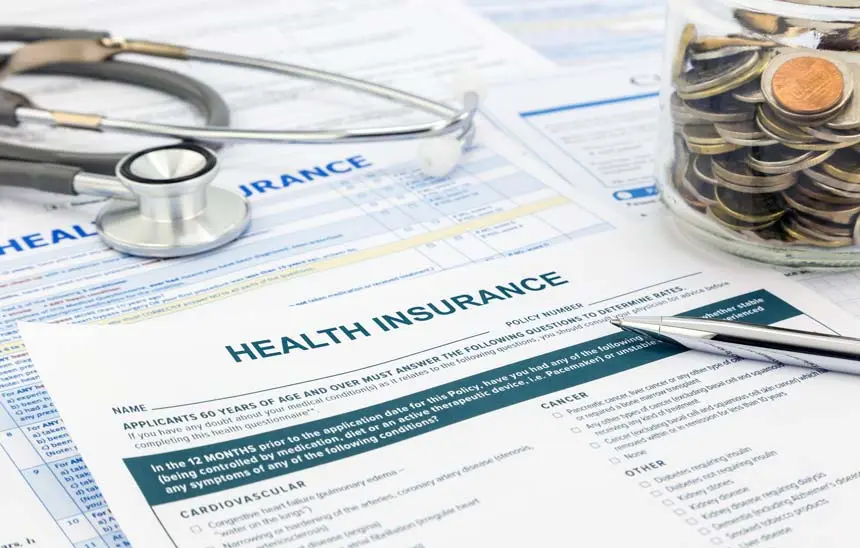
The two most common Mississippi health insurance companies are Ambetter of Magnolia and Molina Healthcare.
Depending on your coverage, you may be able to get a portion, or all of the cost of substance misuse treatment covered. You may be qualified for Medicaid or Medicare in Mississippi.
Most American health insurance carriers cover Mississippi drug and alcohol rehab centers to some degree, but details and exact coverage can be determined with a confidential call to Find Addiction Rehabs.
When considering therapy for alcohol, mental health, opiates, heroin, and other addictions, insurance is frequently taken into account. The cost of your medical care in Mississippi will be determined by your requirements, where you stay, and other factors. The following are some of the most common payment methods:
- State Insurance Coverage
- Cash or Private Pay
- Medicaid
- Medicare
- Personal Insurance
How to Pay for Substance Abuse Treatment Without Insurance
If you look into alternate funding options, you may be able to enter therapy and receive essential care even if you don’t have health insurance. Patients can pay for medical services with credit cards developed exclusively for medical bills.
Furthermore, if your MS rehabilitation clinic accepts sliding-scale payments and you fulfill the income criteria, you may be eligible for lower treatment fees. Another option is to borrow money from a friend or family member.
Where Can I Find Free Drug and Alcohol Rehab in Mississippi?
People in Mississippi who do not have health insurance might look into free drug rehabilitation programs. Uninsured people can receive low-cost or free drug rehabilitation from state-funded clinics.
Check the federal database of treatment centers and the Mississippi Department of Mental Health’s Addictive Services Resource Directory for free drug recovery programs in Mississippi. These tools can provide a concise review of locations that offer free rehabilitation programs that could help you or a loved one recover your feet.
Day therapy, as well as programs for children, adolescents, women, and the elderly, are available in some Mississippi treatment facilities. Although some of these clinics have waiting lists, pregnant women who are struggling with substance abuse are given precedence.
Free Services for Military Personnel in MS
Medication-assisted therapy for alcoholism, which is frequently covered by state insurance (Tricare), can assist you in receiving the appropriate medications to address your alcohol addiction. You may also be qualified for alcohol medication-assisted therapy through private insurance, depending on your insurance provider.
Similarly, under Tricare, medication-assisted treatment for opioids is provided by the state or a variety of private insurance providers. Even if they do not need medication to overcome their drug abuse addiction, the vast majority of people require medication-assisted mental health treatment.
IHS funds the LGBTQ Clients Payment Assistance Program, which aids American Indians and Alaska Natives. Locate a facility that provides payment assistance, such as IHS-funded choices, to save money while receiving necessary care.
Luxury Rehabs in Mississippi

Mississippi is home to several luxury rehabs. The Mississippi Bureau of Alcohol and Drug Services oversees and reviews drug treatment facilities throughout the state. Residents who are addicted to drugs or alcohol can pick from treatment programs that address each stage of recovery. A few of the more common offerings at a luxury rehab in Mississippi include:
- Private bedrooms and/or bathrooms are generally accessible, even if not standard
- While group therapy is important, individual therapy and attention are more available
- Residential care with amenities such as a swimming pool, gym, or fitness center
- Services for Aftercare and Alumni are more robust and comprehensive
- Holistic offerings such as adventure therapy and yoga therapy are offered
- There is always help accessible, such as 24-hour on-call psychiatrists or crisis staff
Should You Travel to Mississippi for Rehab?
Although Mississippi’s rehabs are qualified to deal with a wide range of substance misuse concerns, you or a loved one may need to seek treatment outside of the state. Your distance from home, however, should not hinder you from making such a decision.
Many people have successfully recovered after traveling for rehabilitation.
There are several advantages to traveling out of state or even across the country for rehabilitation. Those willing to travel for treatment have additional options, allowing them to be more selective in selecting the most appropriate clinic. It also has an impact on the way a person thinks when in a rehabilitation program.
- Many clients are concerned about the stigma attached to addiction therapy. They are concerned that their friends, coworkers, or other people will judge them for their initial decision to use drugs. Addiction is a terrible disease that, like all other disorders, must be treated. It is normal, though, to want privacy when deciding whether or not to seek counseling. As a result, going to treatment outside your home state can be a terrific option because you are far less likely to run into someone you know.
Mississippi Alcohol and Drug Rehab Centers

Mississippi has various inpatient and outpatient drug and alcohol rehabilitation centers. According to a 2018 poll, 53 (54.1%) of MS rehabilitation institutes are private non-profit organizations, whereas 22 (22.4%) are commercial for-profit institutions. Local governments fund 15 rehabilitation centers (15.3%), the federal government four, the state three, and the tribal government one.
These addiction treatment centers are located throughout Mississippi and offer a wide range of treatments. Depending on where you reside, you may have access to beautiful sand beaches and pleasant weather all year round.
If you need help navigating the process of admission to a facility, please reach out today to the Find Addiction Rehabs 24-hour helpline. You can speak with a representative at any time to learn more about individual centers, the services they provide, your prospective treatment options, and other important details.
Local Resources
- Alcoholics Anonymous in Mississippi: Attend a meeting in Mississippi to learn more about AA.
- Narcotics Anonymous Mississippi Gulf Coast Area – Organize meetings and other events around Mississippi’s Gulf Coast, including Biloxi, Gulfport, Pascagoula, D’Iberville, and other areas.
- Mississippi Department of Mental Health Helpline: A 24-hour hotline that helps people find a local mental health or drug abuse treatment.
Where in Mississippi Can I Find Alcohol and Drug Detoxification Centers?
Detoxification under medical supervision is usually the initial step in treatment.
It has the potential to minimize both the unpleasant withdrawal symptoms and the hazards associated with withdrawal. There are detoxification facilities in Mississippi where you can safely and thoroughly detox from drugs or alcohol if you are considering obtaining treatment.
According to a 2018 survey, the following are the locations of alcohol and drug detoxification centers in Mississippi:
- Outpatient alcohol and drug detox are provided by five (5.1%) of the treatment facilities.
- Outside of hospitals, there are 26 (26.5 percent) residential detoxification centers.
- Hospital inpatient detox is provided by 13 (13.3 percent) of the facilities.
Find Addiction Rehabs can assist you in locating a safe medical detox facility in Mississippi. With dedicated recovery representatives available 24/7, they can help assist you with finding facilities in Mississippi or nationwide. Please give yourself a break, and reach out for help today!



